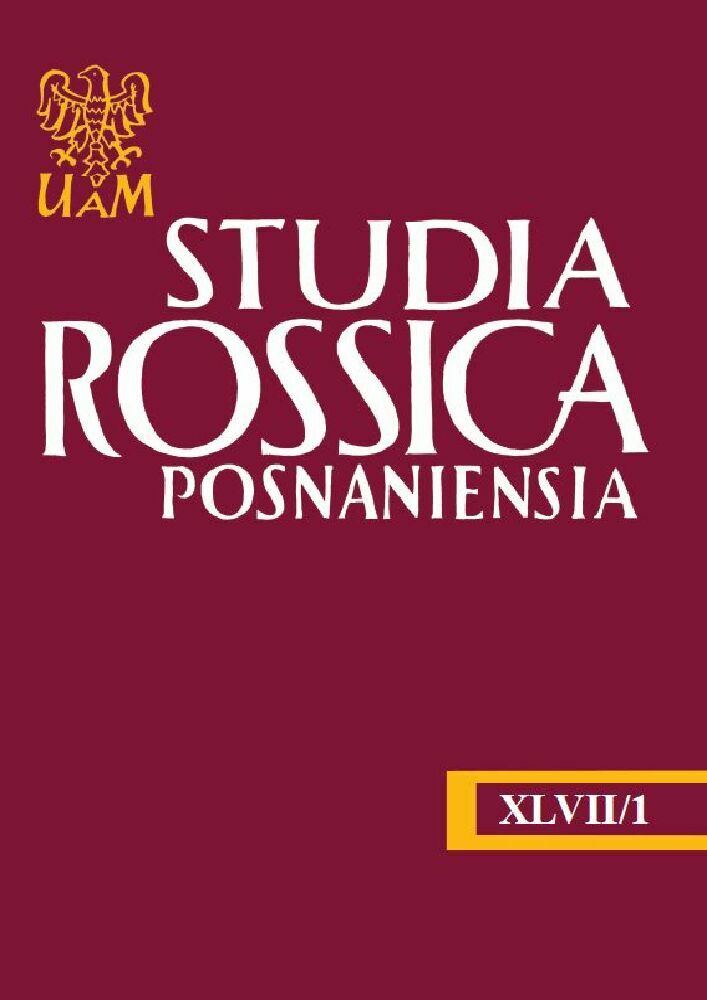Аннотация
This study focuses on the translation of Vsevolod Nekrasov’s poetry into Czech. However, it also considers the more general question of whether it is possible to transpose poetry full of delicate humour, hidden allusions, codes and ciphers into another language in such a way that the reader would not be deprived of the aesthetic impression of the original. Nekrasov’s creative and playful poetry poses, at the same time, serious questions and contains hidden messages that should not be ignored by the translator either. The study also points out and demonstrates, using particular examples, that in the process of translation the translator must take the responsibility for the interpretation of the text and must “determine” it to certain extent. This subjective prism then becomes an indispensable part of the reception of translation in the target language area. Specifically, in case of Nekrasov’s poetry, the translator must, besides usual difficulties, face also other challenges, such as the translation of neologisms or uncommon realia, which form the basic elements of his verses.
Библиографические ссылки
Bobrinskaâ, Ekaterina. Konceptualizm. Moskva, Galant, 1994.
Fišer, Zbynĕk. Překlad jako kreativní proces: teorie a praxe funkcionalistického překládání. Vyd. 1. Brno, Host, 2009.
Hrdlička, Milan. Literární překlad a komunikace. Praha, Filozofická fakulta Univerzity Karlovy, 1997.
Il’jasov, Farchad. „Mat v tri hoda (opyt sociologičeskogo issledovaniâ fenomena necenzurnoj brani)”. Čelovek, 3, 1990, s. 198–204. Web. 12.05.2021. http://iliassov.info/article/mat.htm.
Iser, Wolfgang. „Apelová struktura textů”. Čtenář jako výzva. Výbor z prací kostnické školy recepční estetiky. Red. Miroslav Červenka. Brno, Host, 2001, s. 39–60.
Kitzlerová, Jana et al. „Básnický experiment jako překladatelský problém”. Orients Aliter, 1, 2020, s. 52–77.
Kufnerová, Zlata. „K současnému stavu teorie básnického překladu”. Slovo a slovesnost, 46, 1985, s. 237–242.
Kulakov, Vladislav. Lianozovo. Poezie periferie a konkrétní poezie. Poezie je to, co se nezapomíná. Rozhovor se Vsevolodem Někrasovem. Per. Karel Brávek. Literární noviny, 41, 2003, s. 15.
Levý, Jiří. Umění překladu. Praha, Panorama, 1983, s. 42–81.
Machoninová, Alena. „Ekologie poezie Vsevoloda Někrasova: ticho, které je vidět”. Svět literatury, 43, 2011, s. 140–165.
Machoninová, Alena. „Mlčení minimalistických básníků”. Svět literatury, 34, 2006, s. 175–194.
Machoninová, Alena, Jan Machonin. Zloději všedních okamžiků. Praha, Arbor Vitae, 2015.
Mládek, Ivan. Zkratky. Poslední leč. 1981. Web. 26.05.2021. https://www.youtube.com/watch?v=CMpzQeFKrYc.
Mokienko, Valerij. „Russkaja brannaja leksika: cenzurnoe i necenzurnoe”. Rusistika-Berlin, 1/2, 1994, s. 50–73. Web. 12.05.2021. http://www.philology.ru/linguistics2/mokiyenko-94.htm.
Nekrasov, Vsevolod. I live, I see. Selected poems. Per. Ainsley Morse, Bela Shayevich. New York City, Ugly Duckling Press, 2013.
Nekrassow, Wsewolod. Ich lebe ich sehe. Gedichte / Ausgewählt, aus dem Russischen übertragen und mit einem Nachwort versehen von G. Hirt und S. Wonders. Vorwort von E. Gomringer. Münster, Helmut Lang Verlag, 2017.
„Stichi Vsevoloda Nekrasova v perevodach”. Polilog, teorija i praktika sovremennoj literatury, elektronnyj žurnal, 3, 2010, s. 138–159. Web. 07.02.2022. http://polylogue.polutona.ru/upload/private/Polylogue_3_2010.pdf.


